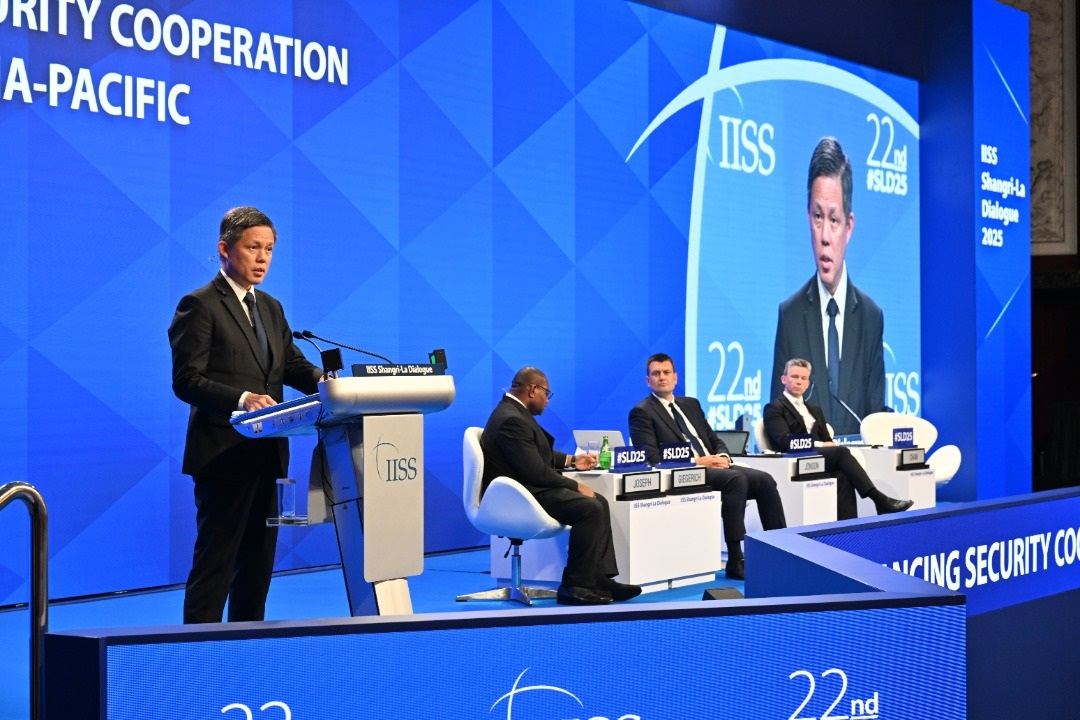DIPLOMACY
FOCUS ON BUILDING TRUST FOR REAL OUTCOMES
08 Jul 2013
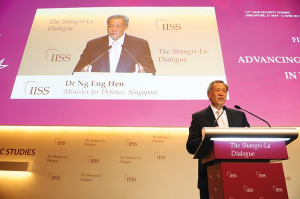
This year's Shangri-La Dialogue covers topics such as security at sea, emerging security trends and ways to bolster trust between regional states, as Asia-Pacific defence leaders meet for three days of candid discussions.
With the guest list reading like a who's who of defence players in the Asia-Pacific, the 12th edition of the International Institute for Strategic Studies (IISS) Asia Security Summit: The Shangri-La Dialogue was one of the key defence forums for the region.
Attended by 27 ministerial-level delegates, top defence officials and scholars, the three-day Dialogue did not shy from difficult topics. Hot-button issues such as overlapping territorial claims in the East and South China Seas, tensions in the Korean Peninsula and cybersecurity were all up for discussion.
In his keynote address on 31 May, Vietnamese Prime Minister Nguyen Tan Dung set the stage when he called for more trust between Asia-Pacific countries. "Trust is the beginning of all friendships and cooperation, the remedy that works to prevent calculations that could risk conflicts."
Real outcomes
The call for more trust was taken to another level when Minister for Defence Dr Ng Eng Hen spoke at the fifth and final plenary session, themed Advancing Defence Cooperation in the Asia-Pacific, on 2 Jun.
Outlining three areas of focus, he called for Asia-Pacific nations to step up practical cooperation to build understanding and trust. Citing the ASEAN Defence Ministers' Meeting Plus (ADMM-Plus) as an example, Dr Ng noted that the grouping will hold its first joint exercise later this month.
Over 2,000 personnel, seven ships, 18 helicopters and medical, search and rescue and civil engineering teams from the 18 ADMM-Plus military forces will be in Brunei for a large-scale Humanitarian Assistance and Disaster Relief (HADR)/Military Medicine exercise. Two other ADMM-Plus full troop exercises in maritime security and counter-terrorism will also be held this year.
"That the ADMM-Plus can move from dialogue to cooperation within a few short years is a significant achievement at the political, policy and operational levels," said Dr Ng.
Such groupings are important to counter the effects of rising nationalism, he added. "Without these frameworks, individual countries risk becoming increasingly insular, at the expense of common goals."
Cooperate against common threats
For his second point, Dr Ng said that regional states must find collective ways to combat common security challenges. These included piracy, the potential spread of weapons of mass destruction and natural disasters.
He noted the good work of the Malacca Strait Patrols, in which Malaysia, Indonesia, Thailand and Singapore collaborate to counter pirate activity. The ADMM-Plus has five Expert Working Groups (EWGs) that look into ways to build cooperation in five areas of common security interest. These are HADR, military medicine, maritime security, peacekeeping operations and counter-terrorism.
"We also recently agreed to set up an additional EWG, on humanitarian mine action, to promote cooperation in dealing with the painful remnants of war in the region," said Dr Ng.
Call for peace
On the third area of focus, Dr Ng said that countries need to "quickly establish channels of communication and other mechanisms at the operational and political levels" to prevent and help defuse escalating tensions.
He said that this was discussed at the 7th ADMM summit held in May, where the ASEAN defence ministers expressed support for the Leaders' commitment to work actively with China to bring about an early conclusion of a Code of Conduct in the South China Sea.
Dr Ng added that Singapore supported the idea of a "no first use of force" agreement among claimant states. This was first suggested by Vietnamese Defence Minister General Phung Quang Thanh at the summit.
He also welcomed Brunei's suggestion to set up "hotlines" to quickly defuse tensions at sea. He added to the idea by suggesting that regional militaries increase the sharing of information, especially between navies, on Standard Operating Procedures in the event of incidents at sea.
At an earlier plenary session on 2 Jun, China's People's Liberation Army Deputy Chief of General Staff, Lieutenant-General (LG) Qi Jianguo assured leaders that despite these recent hot-spot issues, China has "always held that conflicts and disputes should be properly solved through dialogues, consultations and peaceful negotiations so as to maintain the overall peace and development in the Asia-Pacific".
Continued US commitment
It was also clear that the United States (US) would remain committed to the Asia-Pacific as US Defence Secretary Chuck Hagel said his country will continue to focus on security in the region.
After wars in Iraq and Afghanistan, the US Department of Defence will face deep budget cuts over the next nine years. This comes a year after the US announced its focus on security in the Asia-Pacific region. But the cuts will not affect the US focus on the Asia-Pacific. Mr Hagel pointed out that even in the most extreme budget situations, the US will continue to account for nearly 40 percent of the world s defence spending.
"Like the employment of all resources, it is always a matter of the wise, judicious and strategic use of those resources that matters the most and has the most lasting impact."
"We must work effectively in unison to strengthen areas of common interests. Defence cooperation can meet the challenges before us through shared principles, interests and objectives, and above all, political will."
- Dr Ng at the fifth plenary session of the Dialogue
ALSO READ IN DIPLOMACY
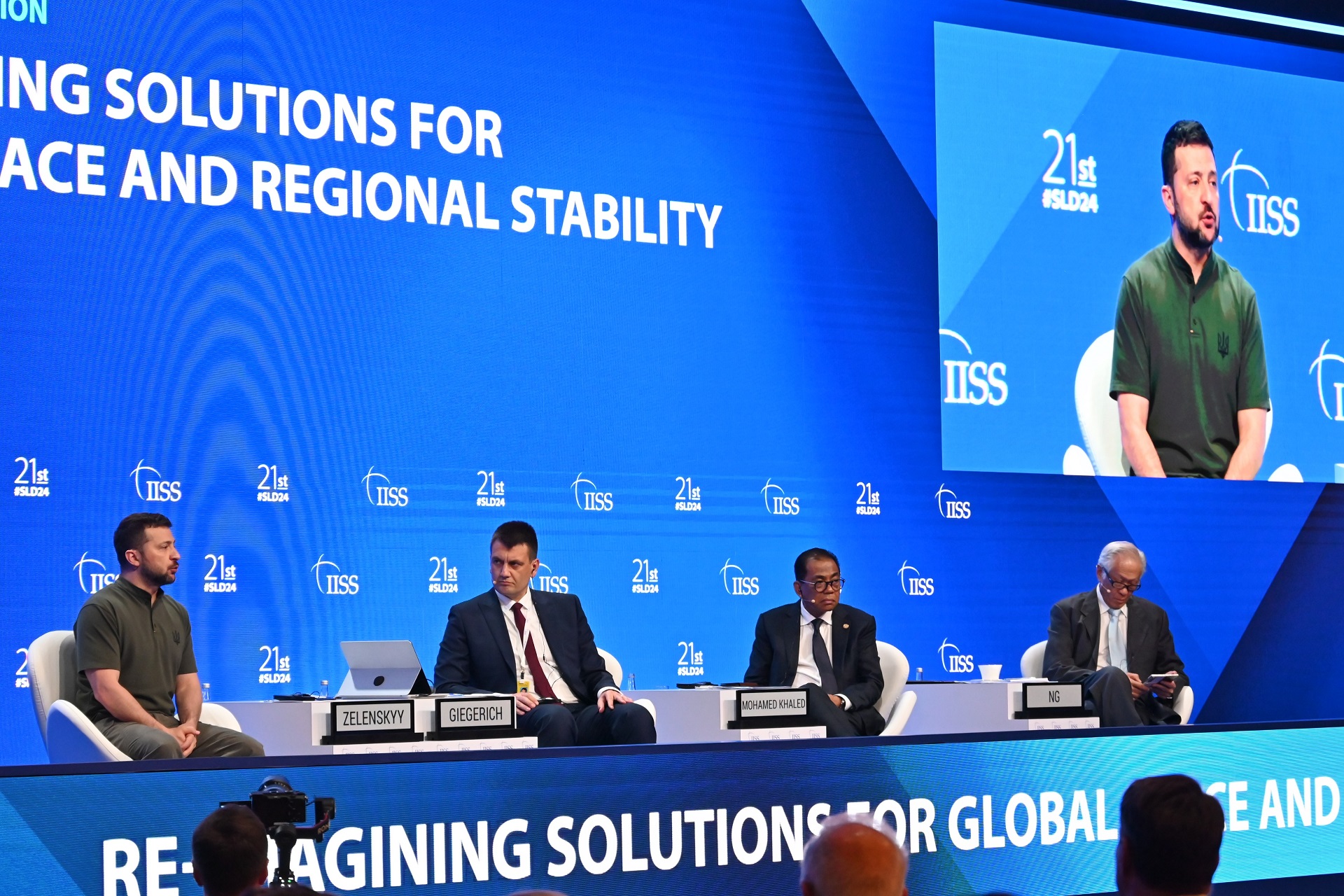
A call for peace at Shangri La Dialogue
02 Jun 2024
A repeated call for peace, especially in Asia. This was Minister for Defence Dr Ng Eng Hen's central message at the 21st Shangri La Dialogue (SLD), held from 31 May to 2 Jun.
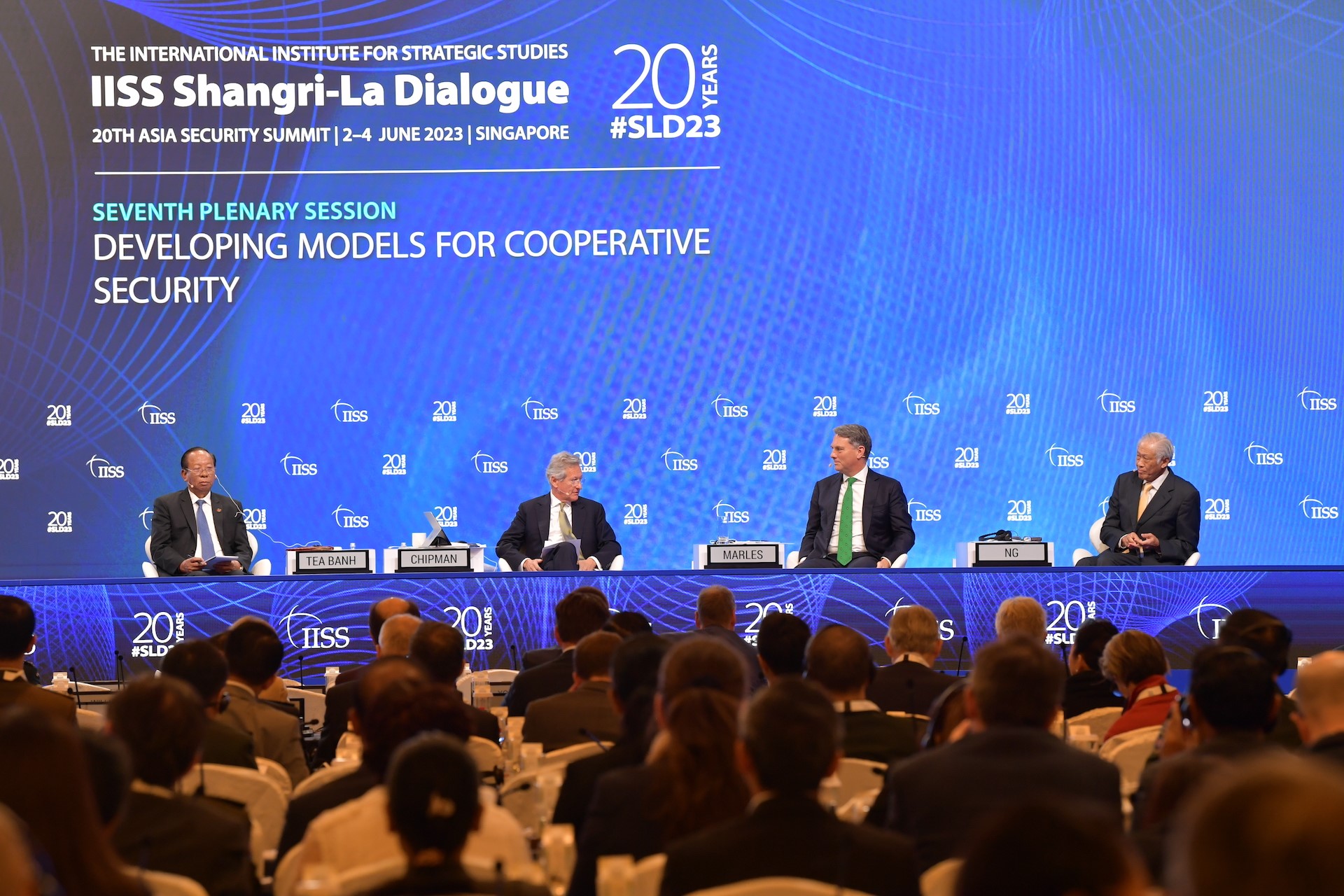
Shangri-La Dialogue sees frank discussion of security issues
04 Jun 2023
The 20th Shangri-La Dialogue, held from 2 to 4 Jun, saw ministers from around the world meet in Singapore to discuss key defence and security issues.
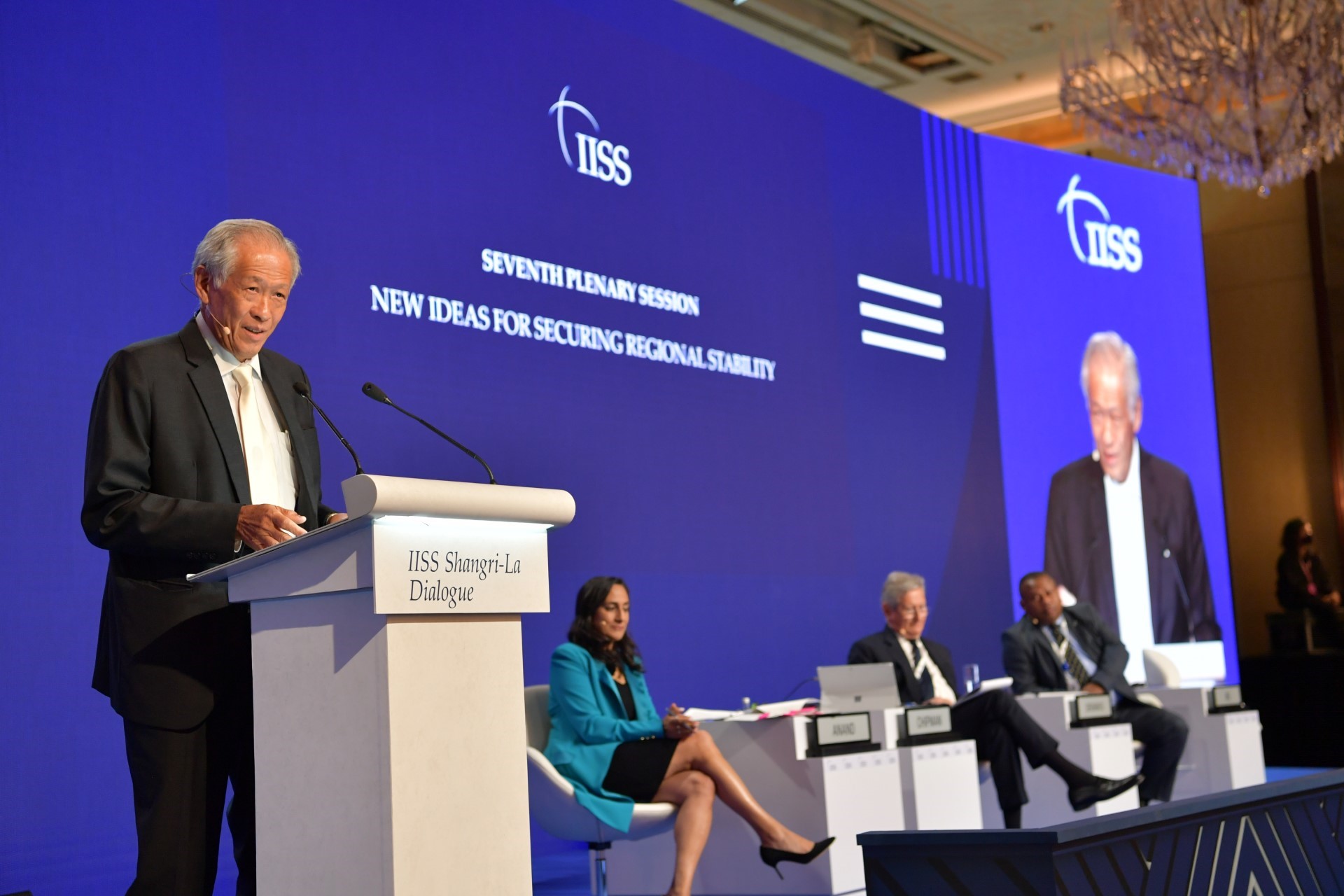
SLD remains valuable platform for crucial discussions: Dr Ng
12 Jun 2022
Minister for Defence Dr Ng Eng Hen spoke on the US-China relationship, the importance of a rules-based order and the role of ASEAN as a regional security platform at the 19th Shangri-La Dialogue (SLD).





